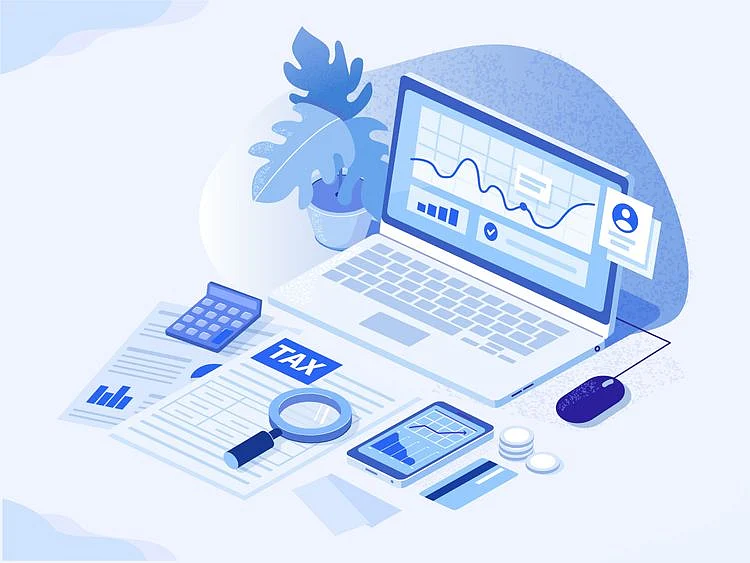UAE's tech, electronics suppliers need to relook their VAT processing on B2B deals from Oct. 30
On their B2B deals, 'reverse charge mechanism' comes into play Oct. 30

The switch to Reverse Charge Mechanism (RCM) on B2B supplies of tech and electronics will bring much needed relief to UAE traders and exporters.
As in the gold and jewellery sector, this arrangement means VAT on supplies of tech and electronic devices need not be charged by the suppliers. Instead, this should be accounted for by the buyers in their VAT returns.
But suppliers and traders in electronics should tread carefully on this reverse charge mechanism facility considering the implementation challenges.
Both buyer and supplier should comply with certain conditions. The VAT-registered buyer should also give a written declaration:
Is it mandatory to follow RCM?
As the reverse charge mechanism facility is subject to compliance requirements, one needs to examine whether the facility is optional or mandatory. Could either the supplier or the buyer opt out from their obligations and charge VAT on the supply as is done now?
The recent public clarification raises an interesting scenario if the buyer of electronic devices does not provide the declaration of intended use. While the supplier would be required to charge VAT on the supply, the buyer cannot recover input tax credit of VAT charged.
The intended usage of electronic devices required for B2B reverse charge mechanism has been equated to the input tax eligibility under Art.54 of the VAT Decree. The scenario will result in significant practical challenges.
Restriction on input tax credit
Computers used in offices, school libraries, or in manufacturing are neither resold by the respective buyers nor used to manufacture electronic devices. As the buyers cannot provide the written declaration for such usage, they could lose the right to recover input credit if the reverse charge mechanism becomes mandatory.
Similar challenges will be faced by the hospitality industry which uses computer tablets in guestrooms to operate services using Internet of Things (IoT) technology. The recycling industry engaged only in salvaging components of electronic devices may also find themselves at odds.
Such practical scenarios may need additional evaluation and discussions to determine input tax availability. They may need additional evaluation to determine the input tax availability. It is possible that the input credit restriction is intended only where the buyer chooses not to give a written declaration even if so entitled (based on the intention to resell).
Classification disputes
The proposed restrictions on the input tax credit in absence of the written declaration would necessitate that the goods are correctly classified. The buyer may not treat these items as ‘electronic devices’ for B2B reverse charge mechanism and recover input credit without exchanging a written declaration. However, the classification disputes during future audits could expose buyers to significant financial risks.
Compliance requirements
The B2B reverse charge mechanism facility requires that the compliance requirements - exchanging written declaration and verifying TRN - should be completed prior to the date of supply.
The date of supply would be the earliest of receiving advance, raising invoice or delivering goods. The suppliers need to educate their sales and shop floor staff to complete compliance requirements before receiving pre-booking advance or making urgent deliveries to regular customers.
Business owners would need to balance between business continuity and compliance requirements.
Apparently, the written declaration and TRN verification would be required for each supply transaction and cannot be substituted by a weekly or monthly declarations. Interestingly, the date of supply is not specified for written declarations requirements for a similar B2B RCM facility provided to gold and jewellery industry.
Verification of TRN through FTA website might require keeping screenshots to demonstrate that compliance requirements were completed before the date of supply. While verifying TRNs, the suppliers should also be careful as the website may still reflect TRN details that are under de-registration.
Single vs multiple supplies
The B2B reverse charge mechanism facility is applicable only on electronic devices. If multiple goods/services are being supplied, the VAT implications depend on the nature of supply being a single or multiple supplies.
In case of multiple supplies, VAT would be applicable on all goods/services other than electronic devices. However, a supply which is incidental, integral or ancillary to the principal supply will be treated as a single supply.
For example, the instruction booklet/CDs provided with new electronic devices should be a single supply and subject to B2B reverse charge mechanism. A supply of a laptop bag along with a laptop for a single price – or supplying installation/transportation services – may fall under multiple supplies.
With reverse charge mechanism being applicable from October 30, the electronic goods industry as well as all businesses that use electronic devices have limited time to ask questions and understand the implications of the new facility.
Network Links
GN StoreDownload our app
© Al Nisr Publishing LLC 2025. All rights reserved.